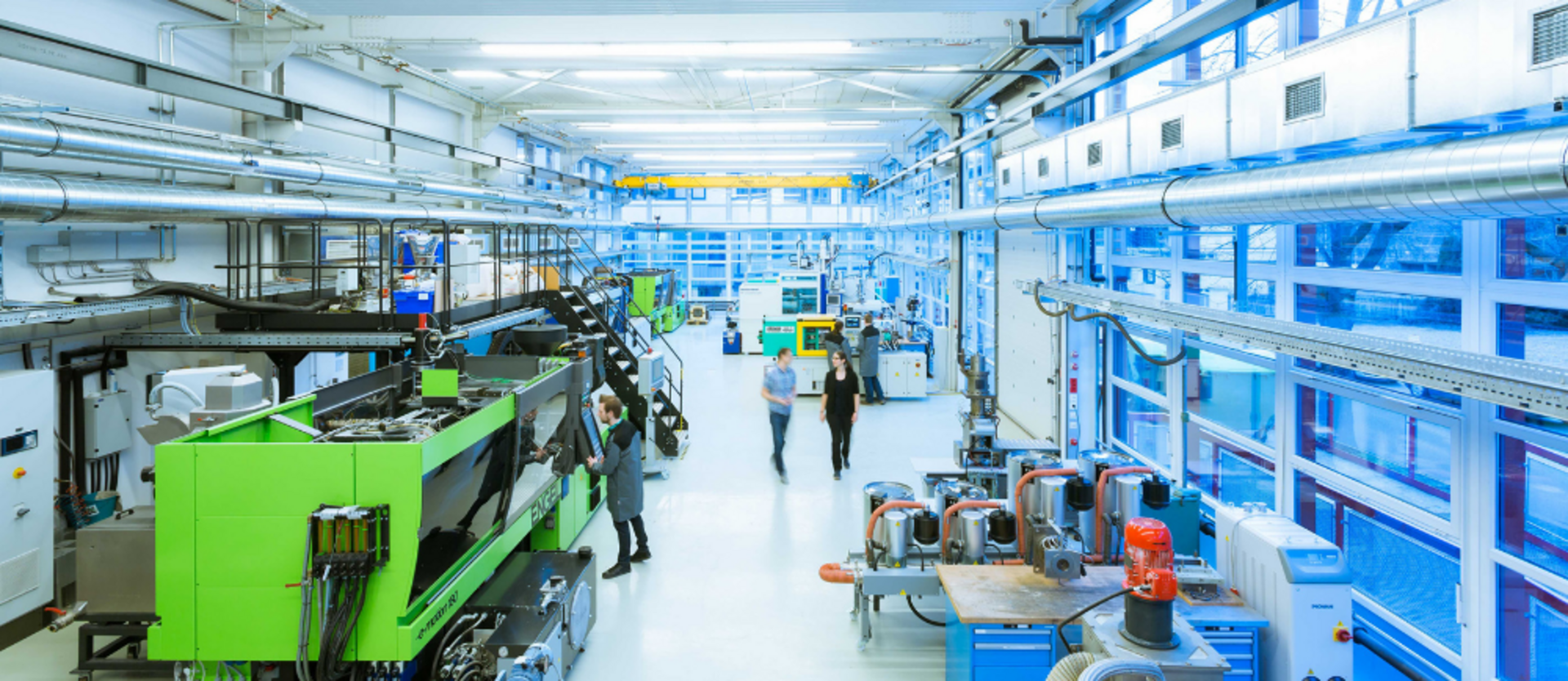Additive Manufacturing
At the Department for Polymer Engineering and Science, three different AM technologies are currently being researched: material deposition by means of inkjet printing, vat-based photopolymerisation and material extrusion.
Within the framework of several research projects, conductive inks were developed that allow the straightforward production of strain sensors, which are currently being tested for the digital monitoring of structures, components and in rock mechanics. In the field of stereolithography, photoreactive resin systems with high heat resistance for the printing of injection molds are being researched, as well as approaches for the realisation of 3D structures with areas of different mechanical properties. A similar approach is also being tested in the field of medical technology, where implants with hard-soft combinations are realized by means of two-component material deposition.
In the "shaping, debinding and sintering" process, metallic components can be built up using extrusion-based AM processes. Within the scope of several studies, the production of components made of aluminium and its alloys, as well as magnetic powders (e.g. NdFeB) is being researched.
In addition to the development of materials, the design of components also provides a significant influence on their properties. In this context, the Department for Polymer Engineering and Science develops bionic structures and characterizes their mechanical properties. In addition, crack propagation in printed 3D polymer parts is investigated.
